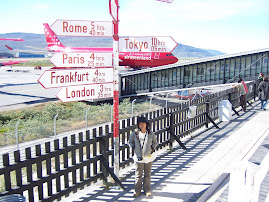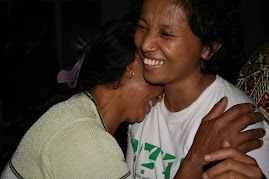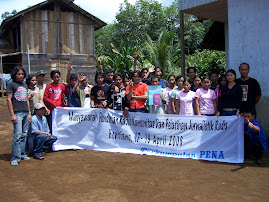Down to Earth No. 58, August 2003
Indigenous rights in West Kalimantan
An interview with Erma Suryani Ranik, volunteer for AMA Kalbar (Indigenous Peoples
What are the main problems facing indigenous peoples in
The main problem is that our land rights are not being recognised. Although the government recognises indigenous peoples' rights under some regulations or laws, these have never been implemented. A big problem is the huge number of oil palm plantations which have taken our lands and cut down our forests. Sometimes indigenous communities are forced by the military or the police to give their land to the company. The most important thing is not compensation, but recognition of our rights. Companies have a lot of money to offer indigenous communities as compensation, but they're never frank about the impact of oil palm plantations. These are not just destroying our lands, but also our cultures. Oil palm isn't part of our farming culture. It's rice that is part of our culture - we have a customary ceremony to ask the Gods for good harvests for our families.
The basic problem is that there is no prior informed consent. And there's no information about the impact of oil palm plantations. The company people just say good things about the company and not the bad impacts, for example that the projects will bring roads to remote areas, which indigenous communities want.
Have things improved in the post-Suharto period?
There is no big difference on the ground. In the case of Nyayat village, for example, 1,400 hectares of land were taken by PT Rana Wasto Kencana in 1999 and three indigenous people were in prison in Singkawang - two for one year and one for 18 months - because they struggled to defend their rights. This happened since Suharto fell.
What are AMA's main demands and how do they push for them?
The main demand is to recognise indigenous peoples' rights and implement them. AMA, working together with NGOs in
The AMA Kalbar secretariat is very small - just 2 people - so it focuses on making progress at a local level.
What have been the other impacts of regional autonomy in the province?
The negative impact is that the Bupatis (district heads) have become raja kecil (small kings) in the name of generating local income. They do everything to get money, including cutting the forest. In one district in West Kalimantan, Kapuas Hulu, the Bupati has imposed a new export tax in the border areas, for every log which is brought out to
How are current relations between the Dayaks and the Madurese in
There is no problem between the two communities now. They can live together because, for the Dayaks, the issue was settled after the Madurese recognised their guilt and paid the adat fine for killing Dayaks (money and jars, wild pig). In 1999 there was more conflict, but between the Madurese and the Malays. There wasn't much Dayak involvement in this conflict. The Madurese have not been able to go back to the Malay villages since then and they are still living in
It is in Dayak culture not to start fights or conflicts.
What is the Dayak traditional opinion on legal and illegal logging?
The Dayaks have customary protected areas. We believe our ancestors are living there and we cannot cut the forest there or make ricefields there. If someone does, they will be punished by customary law, whether they are outsiders or from the Dayak community. On the terms 'legal' and 'illegal' - it's difficult to differentiate. Every company that comes and logs our land is illegal, because they never ask permission to cut our forests. For us, anyone who logs the forest without permission, consultations and agreement, that's illegal. You can't say it's just based on the government regulations because indigenous rights are not recognised by the HPH [logging concession] system. I do support the international campaign against illegal logging, but it's just a tool to get indigenous rights recognised and reform of the forest management system in
Can you describe the problems associated with mining in
There are no big mining companies in
Small-scale gold mining is dangerous because people don't have the knowledge to reduce the environmental impact - they use mercury. This is done in some districts, especially in Ketapang, Benkayang, Landak and
What about the forest fires? Is there evidence of health impacts among forest peoples of the 1997-8 forest fires for example?
There haven't been any studies about this. In
Are you optimistic about the future of indigenous peoples in West Kalimantan and
I am. If all indigenous peoples in
Has your visit to the
I've learned a lot about international NGOs in the






.jpg)
Tidak ada komentar:
Posting Komentar